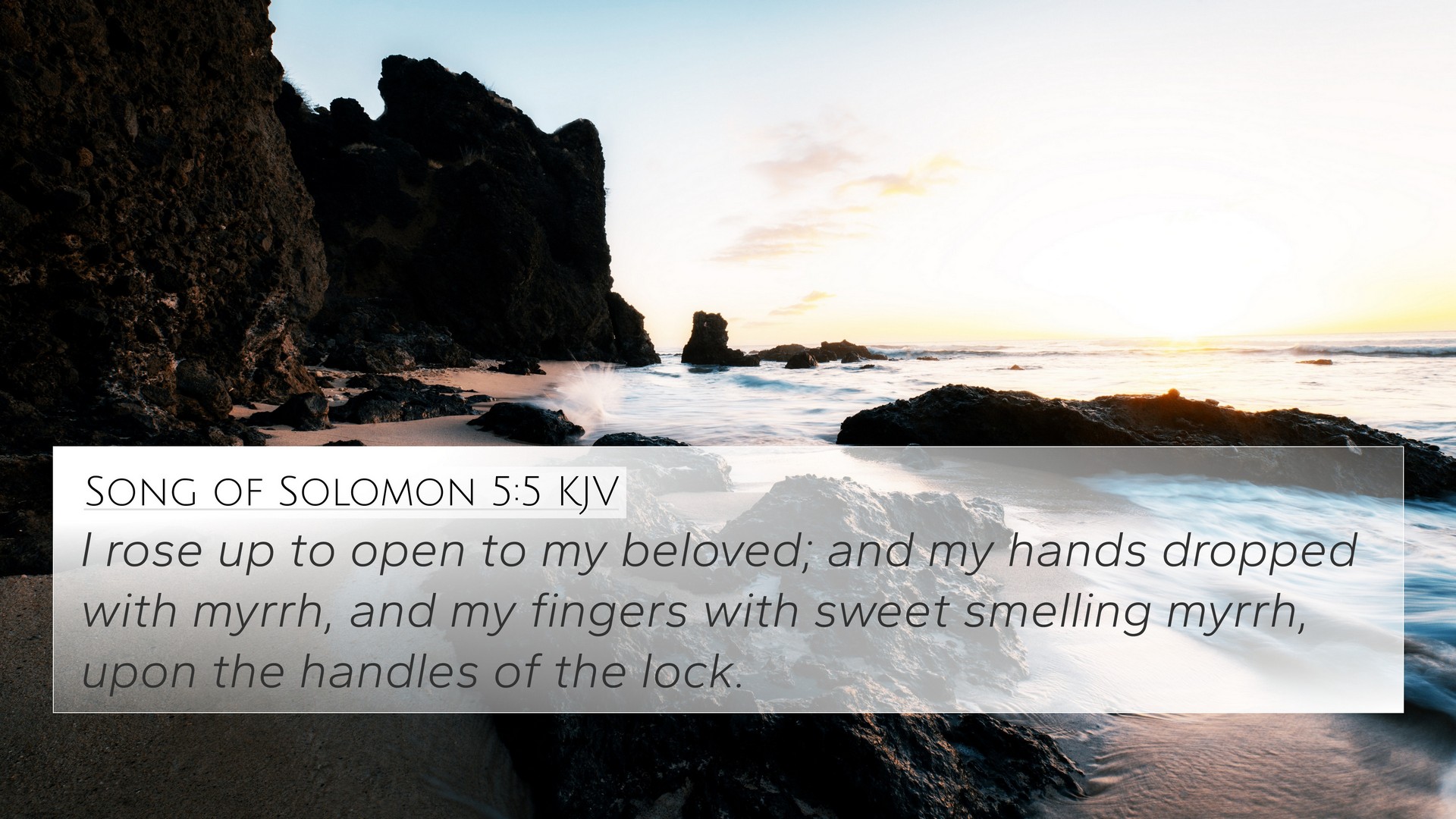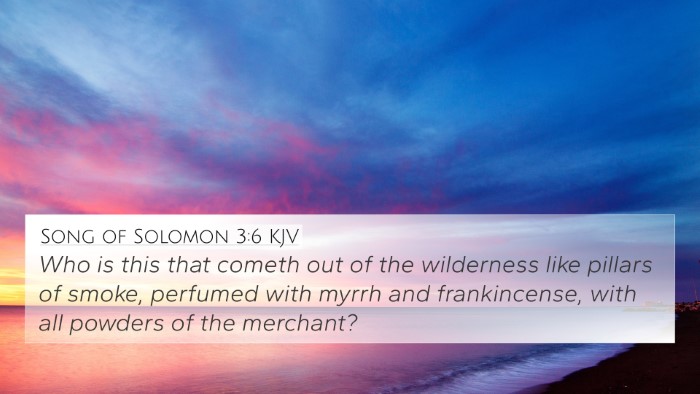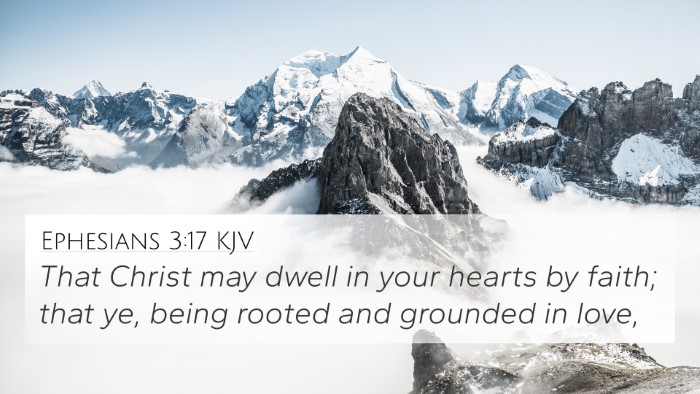Understanding Song of Solomon 5:5
Song of Solomon 5:5 states, "I rose up to open to my beloved; and my hands dropped with myrrh, and my fingers with sweet smelling myrrh, upon the handles of the lock." This verse reflects the intimate and loving relationship between the speaker and their beloved, rich with symbolism that connects to deeper themes in the Bible.
Verse Meaning
This verse demonstrates the longing and personal devotion of the beloved. The myrrh mentioned here symbolizes not only beauty but also suffering and sacrifice, as myrrh was often used in anointing and embalming. The act of rising to open the door signifies readiness and eagerness to respond to love.
Lexical and Thematic Insights
Expounding on Song of Solomon 5:5 reveals several layers of meaning, including:
- Symbolism of Myrrh: Myrrh is frequently associated with divinity and sacrificial love, as seen in Matthew 2:11 when the Magi presented myrrh to Jesus.
- Personal Response to Love: The eagerness reflected in the act of rising signifies a deep yearning for connection—echoing John 10:3-4, where the shepherd knows his sheep by name.
- Intimacy and Sacrifice: Myrrh's connection to suffering complements the narrative of suffering love in Isaiah 53:5.
Cross References
Several Scriptures offer parallels and deepen the understanding of Song of Solomon 5:5. Here are noteworthy cross-references:
- Proverbs 8:17: "I love those who love me, and those who seek me find me." This illustrates the theme of seeking love and connection.
- Matthew 7:7: "Ask, and it will be given to you; seek, and you will find." The act of rising signifies the readiness to seek and receive.
- Luke 11:5-6: The parable of the friend at midnight reflects the necessity of response to love and the urgency that drives actions similar to those seen in Song of Solomon 5:5.
- John 3:16: The ultimate act of love—sacrificial love for relationship, paralleling the devotion expressed in Song of Solomon.
- Matthew 26:6-13: The anointing of Jesus with expensive perfume serves as a direct connection to the myrrh symbolizing devotion and sacrifice.
- 1 John 4:19: “We love because He first loved us.” This verse encapsulates the essence of responding to divine love.
- Exodus 30:23-24: Discusses the preparation of holy anointing oil, linking the fragrance of myrrh to consecration and sacredness.
Comparative Bible Verse Analysis
To better understand this verse, we can conduct a comparative analysis of the themes of love, devotion, and sacrifice:
- Song of Solomon 4:16: "Awake, O north wind; and come, thou south; blow upon my garden, that the spices thereof may flow out." This portrays a similar desire for awakening love.
- Romans 12:1: "Present your bodies as a living sacrifice," drawing parallels to the sacrificial nature conveyed in myrrh.
- Philippians 2:7: "But made himself of no reputation, and took upon him the form of a servant," enhancing the theme of humbling oneself in love.
Tools for Bible Cross-Referencing
Understanding the connections in scripture can be a rewarding experience. Utilizing tools for cross-referencing can enhance one's study of the Bible. Here are some recommended approaches:
- Utilize a Bible concordance to find thematic links within Scripture.
- Refer to a Bible cross-reference guide for deeper exploration of specific themes.
- Engage in cross-reference Bible study to build connections between verses systematically.
- Consider using Bible reference resources that highlight chains of references across both the Old and New Testaments.
Inter-Biblical Dialogue
The interconnectedness of Scripture speaks volumes about God's overarching narrative. By employing cross-referencing methods, you can facilitate an inter-Biblical dialogue that explores how various books of the Bible correspond and enrich one another, providing a holistic understanding of themes like love, sacrifice, and intimacy that we see in Song of Solomon 5:5.
Conclusion
In closing, Song of Solomon 5:5 exemplifies a rich tapestry of love, beauty, and sacrifice. Through comparative Bible verse analysis and scriptural cross-referencing, believers can deepen their understanding of this verse's profound implications and its connections to the broader biblical narrative.











